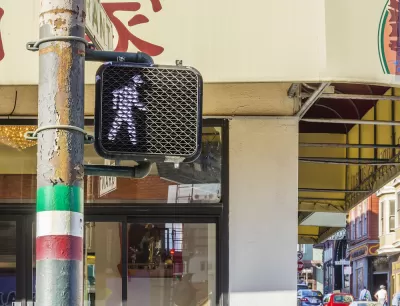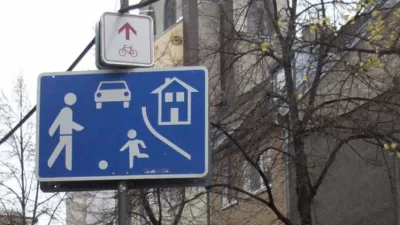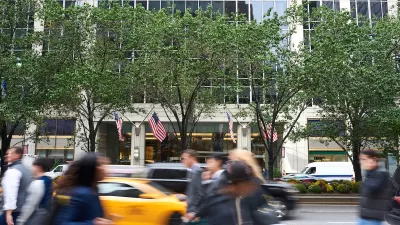Supporters of decriminalization argue that jaywalking laws don’t keep pedestrians safe and disproportionately burden Black and brown communities with fines.

As Jenni Bergal writes in an article for Stateline, some states are reconsidering jaywalking laws, fueling a fierce debate over the laws’ effectiveness and equity. According to Mike McGinn, executive director of America Walks, “[Enforcing jaywalking laws] doesn’t really improve safety. It’s part of a culture of blaming pedestrians.” Moreover, McGinn points out, “it’s used to make pretextual police stops that impinge on the ability of people to move about without being stopped, particularly in Black and brown communities.”
Thanks to arguments like these, “In the past two years, a few states have moved away from strict enforcement of jaywalking laws, making it easier for pedestrians to cross the street outside of a crosswalk or against a traffic signal without getting cited by police.”
Some critics disagree. “[A]t a time when pedestrian deaths are on the rise, opponents of decriminalization say police should be able to issue citations to discourage people from putting their lives in danger.”
Others say pedestrian safety is a matter of infrastructure, not individual behavior. “[T]he Insurance Institute for Highway Safety, a nonprofit research group funded by auto insurance companies, said the answer isn’t to go after jaywalkers; it’s to change the design of streets.” According to McGinn, “The real issue is that we need to design our streets so cars move slowly and carefully and we prioritize the safety of the people walking in their neighborhoods and business districts.”
The article details the recent legislation decriminalizing jaywalking in states like Nevada and Virginia, as well as the effort to pass a similar law in California.
FULL STORY: Racial Justice, Pedestrian Safety Fuel Jaywalking Debate

Alabama: Trump Terminates Settlements for Black Communities Harmed By Raw Sewage
Trump deemed the landmark civil rights agreement “illegal DEI and environmental justice policy.”

Planetizen Federal Action Tracker
A weekly monitor of how Trump’s orders and actions are impacting planners and planning in America.

The 120 Year Old Tiny Home Villages That Sheltered San Francisco’s Earthquake Refugees
More than a century ago, San Francisco mobilized to house thousands of residents displaced by the 1906 earthquake. Could their strategy offer a model for the present?

In Both Crashes and Crime, Public Transportation is Far Safer than Driving
Contrary to popular assumptions, public transportation has far lower crash and crime rates than automobile travel. For safer communities, improve and encourage transit travel.

Report: Zoning Reforms Should Complement Nashville’s Ambitious Transit Plan
Without reform, restrictive zoning codes will limit the impact of the city’s planned transit expansion and could exclude some of the residents who depend on transit the most.

Judge Orders Release of Frozen IRA, IIJA Funding
The decision is a victory for environmental groups who charged that freezing funds for critical infrastructure and disaster response programs caused “real and irreparable harm” to communities.
Urban Design for Planners 1: Software Tools
This six-course series explores essential urban design concepts using open source software and equips planners with the tools they need to participate fully in the urban design process.
Planning for Universal Design
Learn the tools for implementing Universal Design in planning regulations.
Clanton & Associates, Inc.
Jessamine County Fiscal Court
Institute for Housing and Urban Development Studies (IHS)
City of Grandview
Harvard GSD Executive Education
Toledo-Lucas County Plan Commissions
Salt Lake City
NYU Wagner Graduate School of Public Service





























